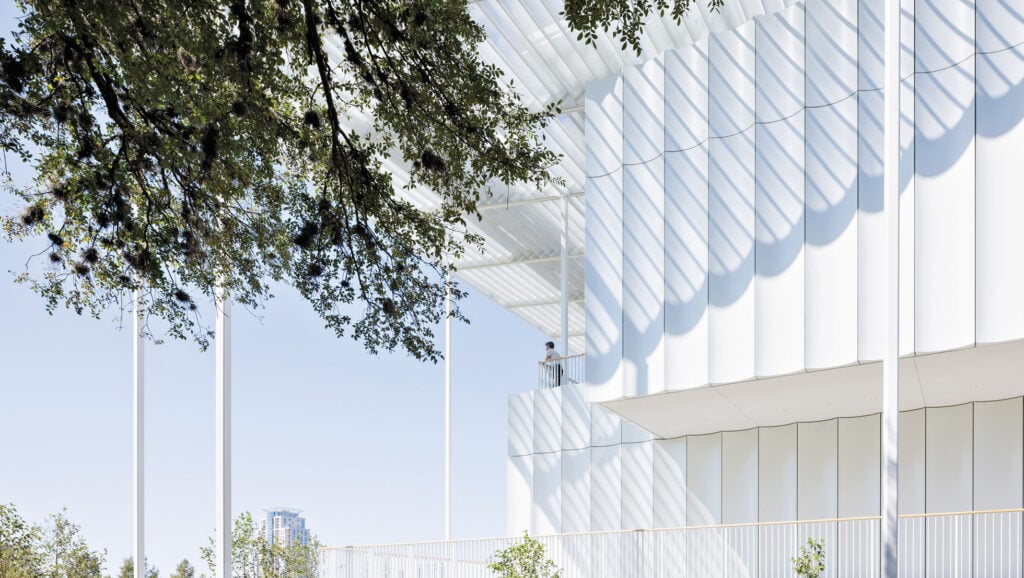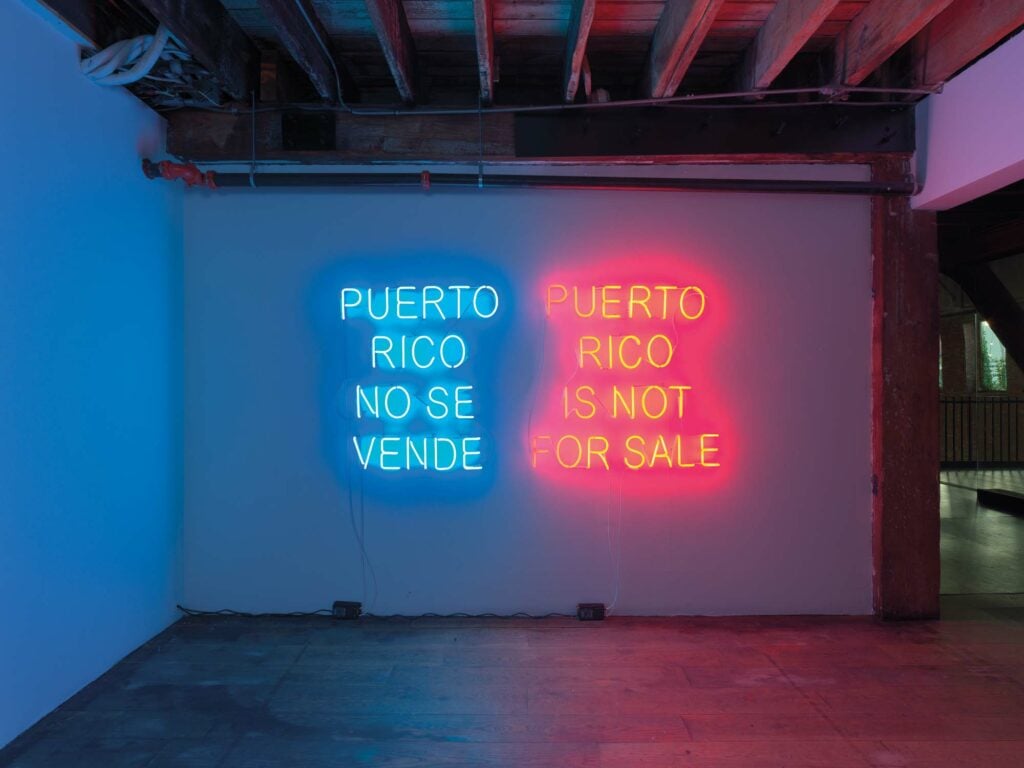
April 12, 2024
Grace Farms Foundation Holds Third Annual Design for Freedom Summit


The summit’s opening keynote was delivered by humanitarian photographer Lisa Kristine, who has documented human rights abuses across the globe, including in brick kilns, stone quarries, gold mines, and fishing villages, where in many instances generations of laborers are indentured over small debts. Kristine’s sobering address and accompanying photos elicited more than a few tears from the audience.
From there, the summit’s scope expanded to feature various panels and an afternoon of breakouts devoted to supply chain auditing, responsible material sourcing, and tailoring investment portfolios to curtail forced labor, among other topics. Of note, WXY founding principal Claire Weisz, participating in the morning portion’s “Realizing the Just Transition” panel, keenly noted how sustainability was once associated with “stuff,” but increasingly has become “a question of the people behind what’s getting made.” Fellow panelist Leonardo Bonanni, CEO of Sourcemap, which monitors supply chain risk and due diligence, cited how the food and apparel industries have successfully “injected greater accountability” into their practices, but when it comes to design and construction, knowing exactly where things are coming from remains a tall order. “You just need to know who you’re doing business with,” he said. “Clear standards drive positive change among suppliers.”
At the mid-day point, I sat down with Sharon Prince and asked for her thoughts on what it will take to achieve full transparency in this space, which is in effect, all spaces. The status quo for builders, she told me, is to not look into supply chains, particularly as it concerns labor. The building community is looking heavily at carbon budgeting and embodied emissions, but we want equal focus paid to fair labor, she said. We want to raise awareness of the embodied suffering that feeds supply chains. “It’s not a separate lane; these things are connected … we are engaged in the full ecosystem of the built environment because no one player can do it.”

Several of those players gathered for the afternoon breakout “Meet the Materials Experts,” the panelists for which, while representing a range of interests, were allied in the belief that fair labor, sourcing low-impact materials, sustainable design, and environmental stewardship are inextricably linked. “There is a way for us to solve everything,” said Annie Bevan, CEO of mindful MATERIALS. “The foundation must be a common language.” A fellow panelist, James Kitchin, director of engineering and performance & provenance at MASS Design Group, said, “We believe design is never neutral. It either hurts or it heels.”
As a topic, a philosophy, and an approach to reworking supply chains, ethical decarbonization ruled the day. Many A-listers from the worlds of design, manufacturing, development, finance, and the non-profit arena took to the stage with evident humility and impassioned pleas; no one showed up to greenwash their brand or pitch their latest product line. “What is the equivalent of ‘net-zero’ for modern slavery?”, asked John Schultz, chief operating and legal officer for Hewlett Packard Enterprise, who sat on a panel moderated by Prince, appropriately titled “Ethical Decarbonization.” A rhetorical query, to be sure, but one that conveys a clear imperative. “This is the human rights tragedy of our times!” he said.
The summit’s closing keynote was delivered by artist, entrepreneur, and human rights advocate Nasreen Sheikh, founder of the Empowerment Collective, who provided what was inarguably the day’s most poignant address. A survivor of modern slavery and forced marriage, having endured 15-hour days in a textile factory in Kathmandu, Sheikh’s long journey has led her to hold court with the likes of Pope Francis and the UN, speaking on endemic issues tied to supply chain transparency and corporate responsibility. While sharing her inspiring and often heartbreaking story, Sheikh observed that “ending modern slavery begins with conscious consumption,” while also stressing the need for broad, decisive action. “We don’t have a lot of time,” she said. “And that is a blessing.”
Would you like to comment on this article? Send your thoughts to: [email protected]
Latest
Viewpoints
Navigating the Path to Net Zero
METROPOLIS mines its archives for pioneering perspectives and projects that prove the possibilities of net zero design.
Viewpoints
The Landscape Architecture–AI Buffer Zone
How long can the idiosyncrasies of landscape architecture keep the promise and peril of artificial intelligence at bay?
Viewpoints
Finding Beauty in Climate Futures
Five recent exhibitions, books, and initiatives highlight utopian visions of design that leaves a positive impact on the environment.





